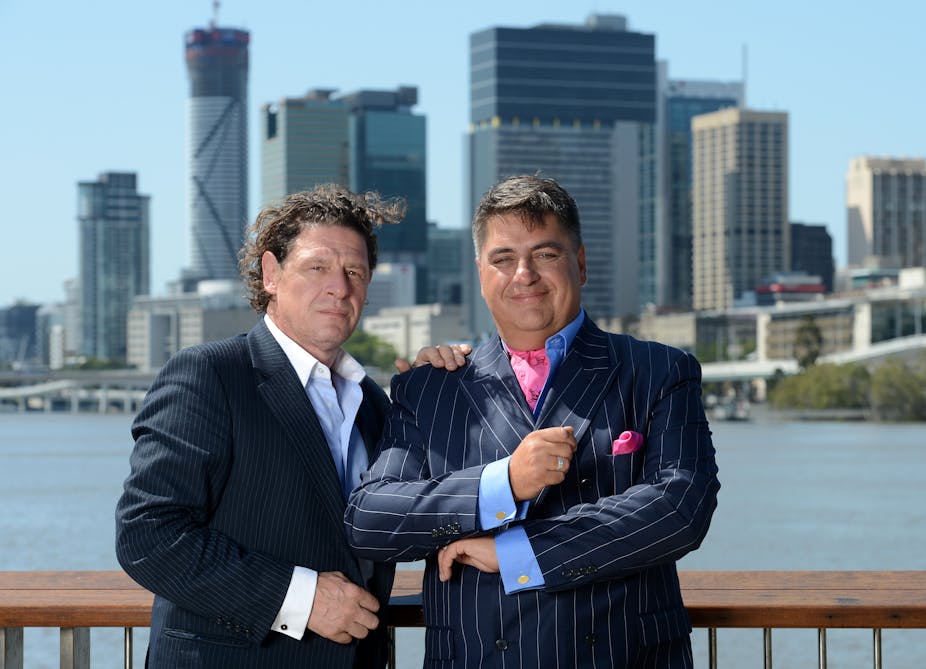As MasterChef fans count down to tomorrow night’s season five finale, advertisers will be crossing their fingers that ratings will match last year’s top-ranking-program status. With a season six on the horizon, the question on everyone’s lips is: have we watched enough MasterChef?
I expect the answer will be no, because of one key ingredient: passion. Passion wins out over technique. Passion is what drives us, lest we be stuck in our passionless jobs or relationships.
Throughout the history of MasterChef, most contestants have been professional or creative-class renegades. Lawyers, teachers, IT professionals, marketing experts, and a newly created category of “stay-at-home” mums and dads, have been willing to sacrifice their previous decade(s) of career-building in search of passion and meaning by turning their amateur cooking interest into owning their own café, restaurant, or other establishment.
Throughout the episodes of MasterChef, we are treated to the intimacies of passionate cooking as the contestants go through the precarious process of producing delicate and delicious meals.
That the stress, emotion, and passion are authentic is brought to us via the close ups that show sweating bodies and people under the extreme competitive pressure. In these moments, the reality of being a chef, including split shifts, broken relationships, poor sleep patterns and substance abuse, is off into the distance. It’s all about this meal.
The contestants are overseen and judged by three male judges. This year there has been a notable absence of woman chefs and judges. The contestants receive subtle mentoring during the course of preparing meals and it is expected that contestants accept, without question, advice about how to proceed with a dish.
The highly edited segments position the judges’ advice and decisions as beyond reproach. The contestants anxiously await the judges’ verdict, and afterwards are left standing while they “deconstruct” their experience. In these situations, the contestant is often more critical of their own work than the judges.
However, when someone wins the best dish of the night, that success is accompanied by cautious statements by the winner indicating that they cannot rest on their laurels but must continually aim to improve; they can appreciate their victory but always in the knowledge that it starts over again tomorrow. Their success is precarious.

When someone produces the worst dish of the night and are removed from the competition, they are never “losers”. Rather, they are winners and they thank the judges for the chance to perform in the competition, for all the advice and opportunities afforded to them, and all the “new doors” that have opened because of their involvement in the competition.
The message that comes from MasterChef regarding the plight of these people seeking a new beginning is also the message of neoliberalism. This is not the macro message of neoliberalism as outlined by Naomi Klein in The Shock Doctrine, even if this is the backdrop. This is the neoliberalism that many academics write about in relation to the changing and precarious nature of work.
The message is: always be positive, passionate, listen to your superiors and never question their credentials nor their judgements. Learn how to be a good team member but never rest easy because that team will change tomorrow. Be confident, but not too confident, because if you don’t perform “you could be going home”.
In a fleeing profession that is probably characterised by increasing competition, compliance, regulation, precariousness, loss of status and downward pressure on salaries, these contestants are willing to give all this away, to purse their new passion.

